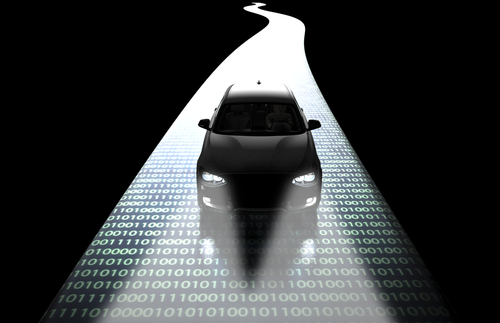
Learn About This Vehicle Safety Feature Before You Buy
Most luxury automakers have touted the placement of extra safety features in shiny models for years, but as designers are now migrating some of these extra technologies into all of their vehicles, consumers should begin searching for them when looking for cars, trucks and SUVs to buy with boosted protection against serious accidents and preventable roadway crashes.
One feature that most newer vehicles have is an electronic stability control (ESC) system. This safety feature runs on traction control and helps keep the vehicle and driver in line with the desired direction by using computer linked sensors to gauge wheel speed, steering, drifting, and rotation. Once the sensors detect a vehicle moving outside of a driver’s intended path, ESC will momentarily brake or reduce engine power, so the driver can travel safely back in-line. This feature is especially helpful for new and older drivers, or for those who find themselves often drowsy and distracted while operating, or those who tend to make unexpected or quick turns. ESC can also help prevent sliding or skidding although safety experts say in-vehicle technologies should never replace the importance of skilled, cautious, sober and alert driving habits.
ESC Systems May Be Named Something Other Than the Norm
Around 2012, ESC truly became a standard system in mostly all new models, especially in SUVs since the technology can also help reduce the number of rollovers related to top heavy vehicles. Consumers may be confused while browsing though as automakers continue to come up with their own savvy name for the feature. The motor vehicle accident attorneys at Rhoads & Rhoads have put together a quick guide to identify vehicles equipped with the ESC to help.
- Acura: Vehicle Stability Assist (VSA)
- Audi: Electronic Stability Program (ESP)
- BMW: Dynamic Stability Control (DSC)
- Buick: StabiliTrak
- Cadillac: StabiliTrak
- Chevrolet: Active Handling (cars); StabiliTrak (SUVs)
- Chrysler: Electronic Stability Program (ESP)
- Dodge : Electronic Stability Program (ESP)
- Ford: AdvanceTrac
- GMC: StabiliTrak
- Honda : Vehicle Stability Assist (VSA)
- Hyundai: Electronic Stability Program (ESP)
- Infiniti: Vehicle Dynamic Control (VDC)
- Jaguar: Dynamic Stability Control (DSC)
- Jeep: Electronic Stability Program (ESP)
- Kia: Electronic Stability Program (ESP)
- Land Rover: Dynamic Stability Control (DSC)
- Lexus: Vehicle Stability Control (VSC)
- Lincoln: AdvanceTrac
- Mazda: Dynamic Stability Control (DSC)
- Mercedes-Benz: Electronic Stability Program (ESP)
- Mini: Dynamic Stability Control (DSC)
- Mitsubishi: Mitsubishi Active Skid and Traction Control System (M-ASTC)
- Nissan: Vehicle Dynamic Control (VDC)
- Porsche: Porsche Stability Management (PSM)
- Scion: Vehicle Stability Control (VSC)
- Subaru: Vehicle Dynamics Control (VDC)
- Suzuki: Electronic Stability Program (ESP)
- Toyota: Vehicle Stability Control (VSC)
- Volkswagen: Electronic Stability Program (ESP)
- Volvo: Dynamic Stability Traction Control (DSTC)
NHTSA researchers, AAA, as well as Consumer Reports’ auto experts highly recommend that before you buy, to take the time to seek out a vehicle with some type of stability control system to help prevent an accident. Just remember technology and in-car safety systems can be an amazing addition, but if a driver chooses to push a vehicle beyond the system’s limits, a crash-related injury may be inevitable.
Support from an Experienced Kentucky Auto Accident Lawyer
Despite purchasing a car, truck or SUV with all the safety features, traffic accidents and road fatalities still happen. If you or someone in your family has been seriously injured or killed in a motor vehicle accident, the Kentucky car accident lawyers at Rhoads & Rhoads want to help.
In addition, if a vehicle’s safety feature failed and caused harm or death to the driver or passenger, victims and families may have a case of product liability. Take advantage of our free initial consultation and discuss your case with us. Call us today at 888-709-9329.


